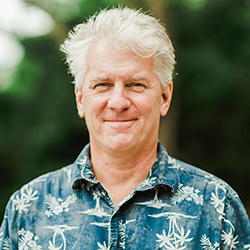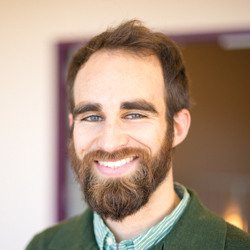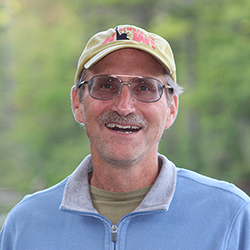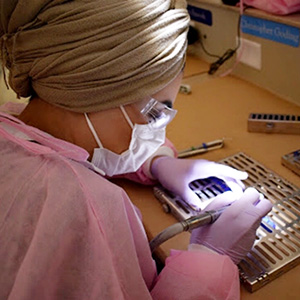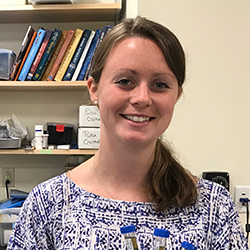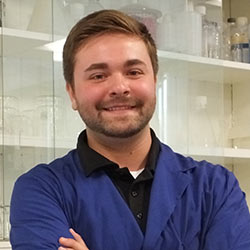Bachelor of Science Programs in Biology & Medical Biology
Saint Joseph’s biology program gives students a comprehensive understanding of the realm of living beings, a strong foundation for graduate study, professional service, and career advancement, and many options in medical biology.
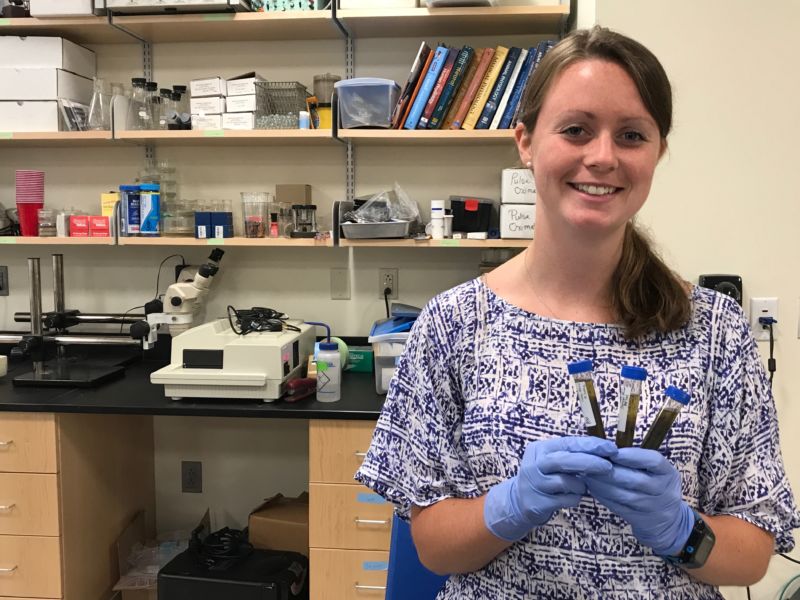
Scientists' most important tools are their ability to integrate new knowledge—whether gained through research or study—with pre-existing knowledge, observation, and self-discipline. Combined, these tools help scientists to better understand the truth. The biology curriculum instills in students a deeper respect for all life forms, an understanding of the connection between all forms of life, the similarities between all life at the biochemical level, and the relationships between organisms in the evolution of life on Earth.
At a Glance
- Rigorous curriculum prepares students for advanced study and careers in biotechnology, environmental and chemical testing, forensic science, and medical laboratory work.
- Faculty members teach lectures and lab, not teaching assistants.
- Students have the opportunity to engage in faculty-led research.
- Internship program for junior and seniors allows students to learn about options within the field and gain valuable work experience.
- Students planning careers as doctors, dentists, or veterinarians can choose tracks in their pre-professional field of choice, and work closely with their faculty advisor to follow the necessary curriculum to gain admittance into professional and graduate schools.
Curriculum
The Bachelor of Science in Biology students will learn experimental skills of laboratory research. Curriculum includes principles of biology and chemistry, calculus, genetics, cellular biology, and biochemistry.
A minor in biology is available and requires students to take 20 credits of course work.
Medical Biology
- Pre-Medical concentration provides prerequisite coursework for students planning to pursue medical school.
- Pre-Veterinary concentration provides prerequisite coursework for students planning to pursue veterinary medical school.
- Pre-Pharmacy provides prerequisite coursework for students planning to pursue pharmacy school.
- Pre-Dental provides prerequisite coursework for students planning to pursue dental school.
- Pre-Chiropractic provides prerequisite coursework for students interested in chiropractic care.
Students in the Medical Biology major may concentrate their coursework in one of the following areas: Pre-Medical Science, Pre-Dentistry, Pre-Pharmacy, or Pre-Veterinary Medicine, as well as preparing for a graduate degree in one of the basic fields of biology, such as ecology, microbiology or physiology. The curriculum is designed to prepare students for professional and graduate school, and relies on careful course selection, relationship with faculty advisors, field experiences, internships, and the senior research project.
Biology/Pre-Optometry
Saint Joseph’s College has an articulation agreement with the Pennsylvania College of Optometry in Elkins Park, Pennsylvania to offer a 3+4 cooperative program in Biology/Pre-Optometry. The first three years of Pre-Optometry study take place at Saint Joseph's College, while the final four years of Optometry take place at the Pennsylvania College of Optometry. Students who successfully complete this seven-year program receive the bachelor of science from Saint Joseph's College with a major in biology and the doctor of optometry from the Pennsylvania College of Optometry.
Biology/Pre-Physician Assistant
The Pre-Physician Assistant program provides prerequisite coursework for students planning to pursue a graduate physician assistant’s program.
Biology and Secondary Education
The Bachelor of Science major in Biology combined with a minor in Secondary Education is the basis for a career as a high school biology teacher. Students who aspire to teach high school biology also take a series of education courses in the secondary education minor, and successfully complete a semester of student teaching in their senior year.
This course of study has been approved by the State of Maine Department of Education and allows students to apply for certification as high school teachers. Students from other states should work with their secondary education advisor to secure current certification requirements for those states.
Sustainability Studies Minor
A minor in sustainability studies is available and requires students to take 20 credits of course work.
Graduate School Agreements
Doctor of Chiropractic Articulation Agreement
Saint Joseph’s College has an articulation agreement with Logan University in Chesterfield, MO, for an accelerated 3 + 3 Doctor of Chiropractic (DC) degree program. Under this agreement students, who complete specific course requirements at Saint Joseph’s College, may continue their education in chiropractic care at Logan and earn both a BS and DC degree in six years. Students should apply for the 3 + 3 program six months to a year in advance of their desired entrance date. A cumulative GPA of 3.0 or higher will guarantee admission into Logan’s DC degree program.
Optometry Affiliation Agreement
Saint Joseph’s College has an affiliation agreement with Salus University Pennsylvania College of Optometry (Salus/PCO) for an accelerated 3 + 4 Doctor of Optometry degree program. Under this agreement select undergraduate students, who complete specific course requirements at Saint Joseph’s College, may continue their education in optometry at Salus/PCO and earn a Doctor of Optometry degree in seven years.
Partnership with University of New England’s College of Pharmacy (4 + 4 Program)
Saint Joseph’s College’s partnership with UNE’s College of Pharmacy provides qualified SJC Medical Biology students with a path to admission to UNE’s College of Pharmacy. UNE College of Pharmacy guarantees all qualified SJC students an on-site interview for the Pharmacy Program.
Some of our faculty
Student stories
Career moves
Explore career opportunities in research, medicine, health care, education, and more.
Related programs
Experiential learning
Environmental Science Semester (ESS)
Students spend the semester immersed in science, traveling from Nova Scotia to the White Mountains to the coast of Maine.
Research
Brooke Murch ’18 Conducts Scientific Sensor Research at Wells National Estuarine Research Reserve
While most time-lapse cameras capture breathtaking sunsets and clouds rolling across expansive skies, Brooke spent the summer using time-lapse video methods to study the opening and closing of mussels. Since mussels are filter feeders, she developed a method for documenting the relationship between mussels opening their shells (this is called gape) and environmental conditions.
Brooke obtained financial support for this research project through the Maine Space Grant Consortium, an affiliate that funds research of interest to NASA through the congressionally established National Space Grant College and Fellowship Program.
The Wells National Estuarine Research Reserve’s partnership with Saint Joseph’s “provides another scientific field experience for students different from the lakes and mountains,” explained Dr. Jury.
→ LEARN MORE ABOUT BROOKE’S RESEARCH
Sea Run Brown Trout Project with Professor Steve Jury
Funded by the Maine Outdoor Heritage Fund, and in collaboration with the Maine Dept. of Inland Fish and Wildlife, Southern Maine Community College, and the Wells National Estuarine Research Reserve, Professor Steve Jury of the Saint Joseph's College of Maine Sciences Department led a Sea Run Brown Trout Research Project that raised and released approximately 200 trout into the Mousam River. This project is investigating if raising brown trout in brackish water conditions changes their behavior, physiology, and persistence after release.
